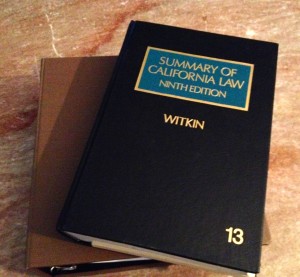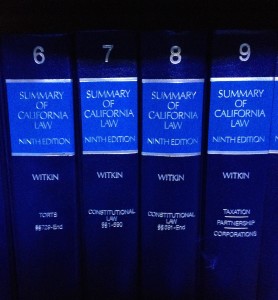Every “Mistake” A Lawyer Makes is Not Malpractice (Part 1 of 2)
We’ve spent a lot of time on this blog discussing attorney malpractice and the legal tests to establish it. This week, we’re taking a short break to discuss some of the things that do not usually qualify as malpractice (aka “professional negligence”).
The items and actions discussed this week may combine with other actions to constitute malpractice, or may be part of a larger pattern of professionally negligent behavior, but they are not malpractice in and of themselves.
VIOLATION OF THE ABA’S “MODEL RULES OF PROFESSIONAL CONDUCT” IS NOT AUTOMATICALLY MALPRACTICE
The Model Rules of Professional Conduct, sometimes shortened to “Model Rules,” were written by the American Bar Association to serve as a set of “baseline standards” for attorney conduct, legal ethics, and professional responsibility. Some state Bar Associations have “adopted” the Model Rules, making them part of the state’s rules governing the way lawyers practice law.
California has its own set of rules governing lawyers’ conduct, which differ from the Model Rules in many ways. One important difference has to do with the attorney-client privilege, which is more expansive in California (in the criminal context, at least) than under the Model Rules. There are other important differences as well, which means that people should not attempt to analyze attorney malpractice in California using the Model Rules alone. Clients should always consult an experienced malpractice attorney for an evaluation of their potential claims.
Neither the Model Rules nor the California ethics and professional standards rules were designed to create a basis for civil (malpractice) liability to clients. They exist to establish basic guidelines for attorneys’ conduct. Violation of a rule, without more, does not necessarily create an actionable breach of duty leading to a successful malpractice claim. However, the rules do establish standards of conduct for attorneys, so violation of the rules may be evidence that the duty owed to the client has been breached. The analysis requires an in-depth knowledge of both the applicable rules and the law of legal malpractice/professional negligence, so clients should always seek an experienced option from uninvolved counsel when the issue of legal malpractice arises.
FAILING TO WARN A CLIENT OF EVERY POSSIBLE OUTCOME IS NOT (AUTOMATICALLY) MALPRACTICE
Generally speaking, a lawyer has an obligation to provide the client with “sound advice” and sufficient information to make an informed decision about the issues in the client’s case or matter. However, this does not require the attorney to advise the client about every possible outcome or alternative which might occur. Once the attorney exercises sound professional judgment, he or she does not have to inform the client of every possible situation and/or uncertainty in the law or facts of the case.
Requiring lawyers to research and map out potentially infinite “decision trees” highlighting every possible result or uncertainty in a client’s case or issue would not only require unreasonable amounts of time (increasing attorney fees substantially) but also create a practically impossible task for counsel.
PROSECUTING A “FRIVOLOUS” APPEAL IS NOT (AUTOMATICALLY) MALPRACTICE
The appellate court standard for reviewing and finding “frivolous appeals” differs from the standards used to evaluate attorney conduct. This means that even if the appeals court holds an appeal to be frivolous in nature, the attorney’s decision to make the appeal is not necessarily malpractice.
*****
As you can see, it isn’t always easy to know for certain when an attorney’s conduct does or doesn’t constitute malpractice. Never use this or any other online (or printed) article–or “word of mouth”– to determine whether or not you have a malpractice claim against your current or former counsel. Consult an experienced malpractice attorney immediately for an evaluation of your legal rights.

















